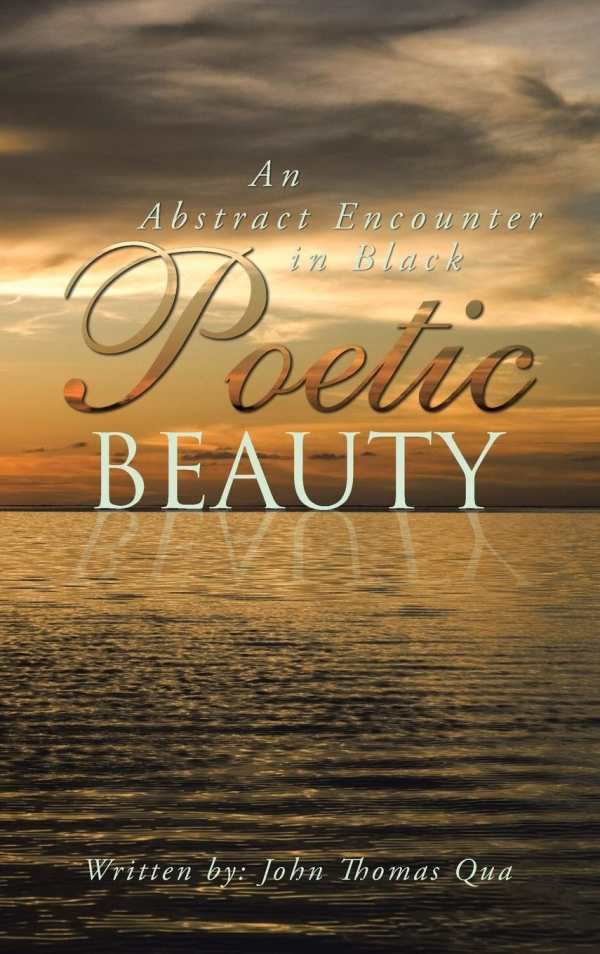
Poetic Beauty
An Abstract Encounter in Black
The prose-poetic pieces collected in Poetic Beauty struggle with love, honor, and eternal questions about the nature of reality and time.
The poems and micronarratives of John Thomas Qua’s literary collection Poetic Beauty are religious in nature.
The book begins with an “Open Invitation to Obtain Eternal Life,” urging the acceptance of Jesus and providing a formula to recite. The entries that follow often focus on religious matters as well, though there are also love poems, poems written as letters to specific people, philosophical entries, and pithy aphorisms included. Over 124 entries are here in total, shared without any thematic divisions.
Set out in paragraph form, the entries have the appearance of diary entries or short homilies. Some pieces appear on facing pages as near mirror images of each other, as with “Special Person” and “An Angel Over There,” whose texts are identical but for an added paragraph in “An Angel Over There.” The significance of the repetition is undefined.
Even when they’re exploring intellectual questions, the pieces have a conversational, everyday tone, without the sonic elements that distinguish poetry from prose. “A Commodity Called Time” includes fresh rhymes, but it is an exception among the entries that surround it. Some compelling figurative language arises, as with “The smoky contents of my thoughts rise higher and higher” and—in “The Safety Pin of the Tongue”—when human forethought is equated with a safety pin that can prevent launching “the missile of the tongue.” The love poems are too predictable in their imagery, though—comparing a beloved person to honey, for example. A few lines stand out from their mix, as with “She’s like a good book that’s continually being re-read in a quiet room.” There are piquing expressions of vulnerability, of deep consideration for others, and of zest for self-knowledge.
On the philosophical front, explicit analogies like “Money is to a pimp, as alcohol is to [a] drunkard” are offered as windows into the thought processes behind individual works. Still, the book’s images and analogies are often veiled, as though they are part of a private code. While the collection’s language is outwardly accessible, its deeper meanings are often obscured. Further, typographical errors (as with “sue” instead of “use”) contribute to the book’s general lack of clarity.
The prose-poetic pieces collected in Poetic Beauty struggle with love, honor, and eternal questions about the nature of reality and time.
Reviewed by
Michele Sharpe
Disclosure: This article is not an endorsement, but a review. The publisher of this book provided free copies of the book and paid a small fee to have their book reviewed by a professional reviewer. Foreword Reviews and Clarion Reviews make no guarantee that the publisher will receive a positive review. Foreword Magazine, Inc. is disclosing this in accordance with the Federal Trade Commission’s 16 CFR, Part 255.
